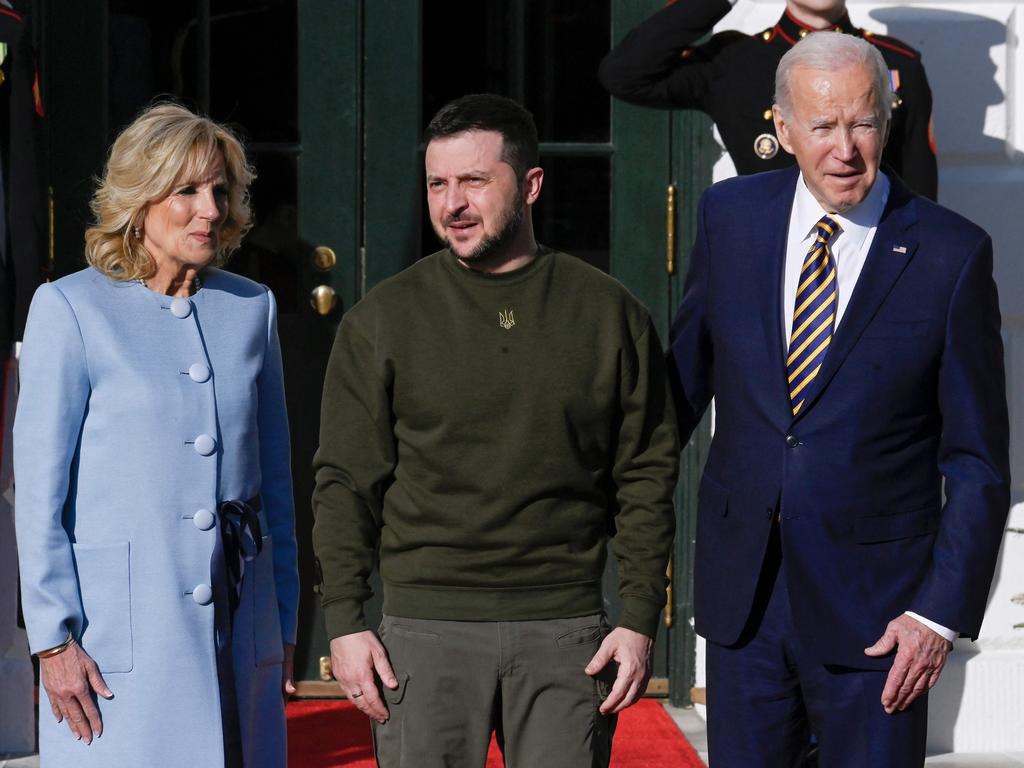Russia’s modern war replays a tragedy of ancient history
If we seek peace in Ukraine through an accommodation with evil, then we lose hope that small states will ever stand erect in the face of overwhelming force.
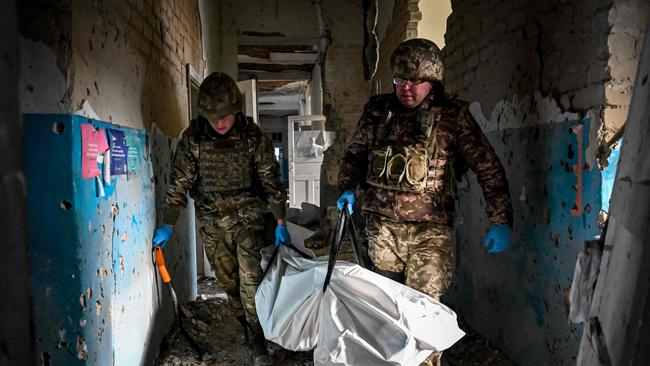
The war in Ukraine rings with many ancient echoes.
The sickening phrase “meat grinder” evokes the physical impact of an artillery barrage – humans reduced to mere fragments – and a Russian military ethos that accepts massive loss of life as the necessary cost of minor territorial gains. It also recalls, from a great distance, the battle scenes in Homer’s Iliad.
Writing in 1939, as Adolf Hitler was preparing to invade Poland, French philosopher Simone Weil wrote a penetrating essay on the Iliad’s vision of overwhelming force.
“Exercised to the limit, it turns man into a thing in the most literal sense: it makes a corpse out of him,” she wrote. “Somebody was here, and the next minute there is nobody here at all; this is a spectacle the Iliad never tires of showing us.”
Re-reading Homer’s martial epic today, more than 80 years after Weil’s essay, we see the dehumanising horror of Vladimir Putin’s war reflected from an immense distance with frightening clarity. Putin’s meat grinder is not so very different from Homer’s.
Achilles, drawing his sharp sword, struck
Through the neck and breastbone. The two-edged sword
Sunk home in its full length. The other, face down,
Lay still, and black blood ran out, wetting the ground.
But perhaps the most striking – the most apposite – of ancient echoes rings out from a famous diplomatic exchange several centuries after Homer.
The year is 416BC. The war between Athens and Sparta has endured, in one form or another, for more than a decade; and it will persist another 12 years. Athens, following its defeat of the Persian army in 480BC, has bloomed into an Aegean empire. But Sparta, from its home in the oak leaf-shaped Peloponnese, has other ideas. Thucydides, the great historian of the Peloponnesian War, sets the scene crisply: “The growth of the power of Athens, and the alarm which this inspired in Lacedaemon (Sparta), made war inevitable.”
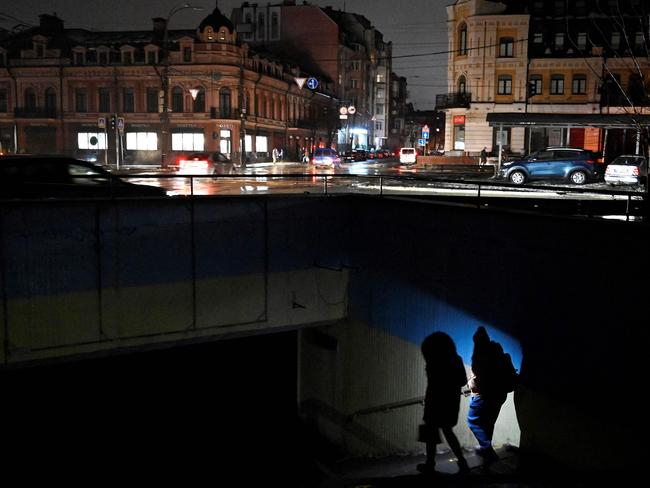
The people of the tiny Cycladic island of Melos (home of the Venus de Milo), enjoy a traditional alliance with Sparta. But in this war between the two rival Greek city states and their allies, they hope to maintain a neutral stance. For Athens, war is a zero-sum game and neutrality is not an option; the Melians must agree to become tributary allies or suffer a form of ethnic cleansing: men of fighting age killed, women and children taken into slavery, and Athenian colonists sent to repopulate the island.
In the summer of that year the Athenians dispatch an army of 3400 men to Melos and ambassadors to negotiate with the Melian rulers.
In the following negotiations, as reconstructed by Thucydides, the Athenians articulate the origins of the doctrine of realpolitik. They offer no justification for their invasion other than the imperative of raw power.
“For ourselves, we shall not trouble you with specious pretences – either of how we have a right to our empire because we overthrew the Mede (Persians), or are now attacking you because of wrong that you have done us – and make a long speech which would not be believed …”
The Athenians argue instead that “right, as the world goes, is only in question between equals in power, while the strong do what they can and the weak suffer what they must”. The Athenians are also concerned that a neutral Melos would signal Athenian weakness across the Aegean, thereby emboldening other islands. A strong state that fails to exercise its power is no kind of power at all.
The Athenians argue that this “law” – this power principle – existed before and will persist “forever after us. All we do is make use of it, knowing that you and everybody else, having the same power as we have, would do the same as we do.”
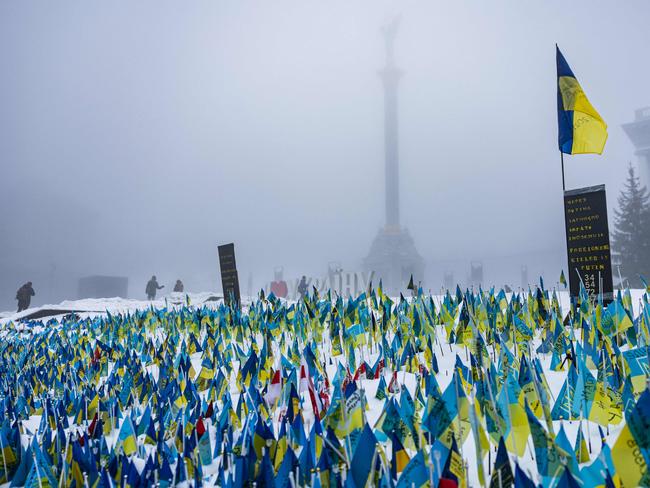
The Melians are plucky. They return that they “know that the fortune of war is sometimes more impartial than the disproportion of numbers might lead one to suppose; to submit is to give ourselves over to despair, while action still preserves for us a hope that we may stand erect.” They reject the Athenian offer, go on the attack, and in time meet the fate promised them by the ambassadors: complete destruction and colonisation.
The stand-to between the Athenians and the Melians anticipates the glaring inequality that frames the conflict between Russia and Ukraine. In both cases an arrogant imperial power, anxious about the allegiances of a formally neutral ally that is nevertheless sympathetic to a rival power, offers two choices: survival and subjugation, or destruction and oblivion.
The Athenian view is that rights exist only between equals; when it comes to relationships between the great and the small, might is the only right. This is very much Russia’s view today.
The Ukrainians are not, naturally, likely to suffer the fate of the Melians. But that is the fate, we can reasonably conjecture, that Putin wishes for them – subjugation or oblivion.
This dialogue gave rise, in time, to the doctrine of realpolitik; a philosophy of realism in international relations. Boiled down to its essence, realpolitik concedes that in relations between states, might is the supreme – perhaps the only – right. In contemporary international relations, realpolitik is most closely associated with former US secretary of state Henry Kissinger. And in Kissinger’s writings on the Ukraine war, we catch echoes of the famous Melian dialogue.
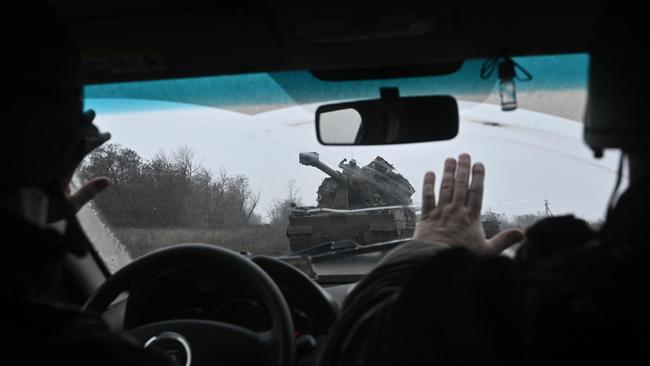
Realpolitik is a doctrine that observes and respects the realities of power. From another perspective, it offers a limited guide to action because it offers no higher morality.
If we accept realpolitik as the last word in international relations, and seek a peace in Ukraine through an accommodation with evil, then we lose hope that small states will ever, as the Melians argue, “stand erect” in the face of overwhelming force.
Or that “the lamp of the wicked will go out” (Proverbs 24:20). Here I am mixing traditions in a way that Weil, a Jewish convert to Christianity by way of classical civilisation, would have understood.
The final twist in the Peloponnesian War is a cautionary tale that powerful states would do well to heed.
The insolent arrogance on display in the Melian dialogue (or perhaps hubris, a Greek word, is more appropriate) drove Athens on to a series of military miscalculations that ended with defeat, in 405BC, at the battle of Aegospotami – and subjugation to Sparta.


